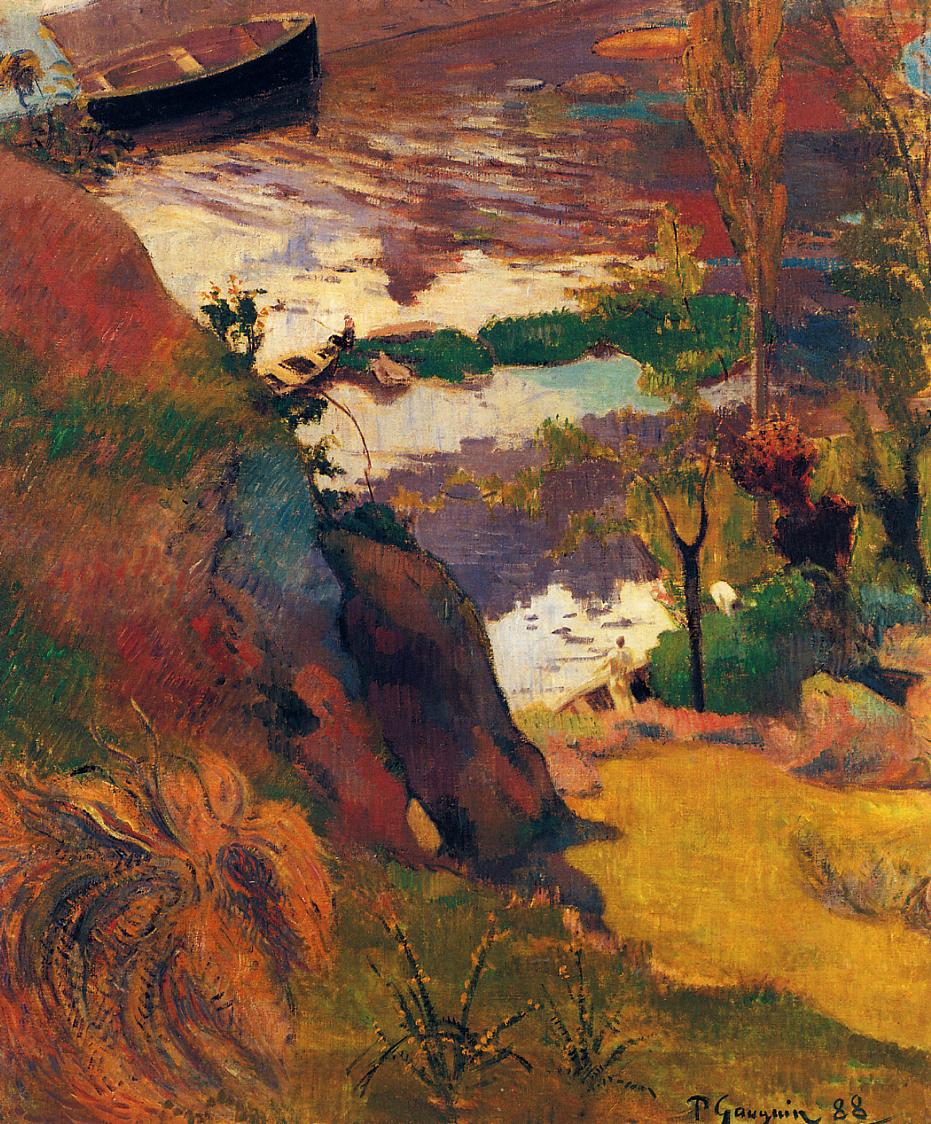

Genevieve Wedgbury is an Associate Fellow of the KLC. She is currently in her first year of a DProf with the Cambridge Theological Federation, is a guest presenter for Radio Maria England and manages her father’s small marine business.
To learn more about Angela Jones, wild swimming and protecting our rivers, you can visit her website, www.angelajonesswimwild.co.uk.

My mum and I went away for a few days towards the end of summer, to the Forest of Dean, where my mum was born. I was excited to explore the beautiful countryside and visit some of the historic sites such as Tintern Abbey, inspired by studying the Romantics at A-Level. They would sit well in discussions and representations of the nurture of nature, though they went so far as to deify the natural world. But the Romantics did illuminate the ability of nature to touch the deepest parts of ourselves in a way that we recognise as being transcendent: Wordsworth describes “the meadows and the woods/And mountains; and of all that we behold/From this green earth” as being “The anchor of my purest thoughts, the nurse,/The guide, the guardian of my heart, and soul/Of all my moral being.”
One way I had always wanted to immerse myself in nature was through wild swimming, partly due to the health benefits it promises. As your body is plunged into the cold water, the flight or fight response is set off, but when you then emerge back into the relatively warm air, a flood of endorphins is released. Current thinking posits the experiencing of these two extremes as priming us to better handle stress. The cottage we were staying in recommended a local outfit, “Angela Jones Swim Wild” – “The Guardian’s recommended Top Adventure Days.” This sounded like the one for me! However, there had been little time to plan. I rushed off an email to Angela, feeling rather foolish, as I hadn’t even brought a swimming costume! I wasn’t expecting to be successful, but to my surprise, Angela offered me a one-to-one swim early the next morning.
I didn’t know anything about Angela Jones, but as I read more on her website, it was clear she is a very special lady. Her wild swimming school is run from a passion to educate people on how to look after our rivers, and in particular, the river closest to her heart, the Wye. She has become an activist in the process, not by design, but by necessity. She spends hours in the river every day, in all seasons, and she sees first-hand the effects of pollution to aquatic life. She is quietly unapologetic about the point of no return the River Wye teeters on. She has made headlines through her media appearances, including on primetime TV, and her creative ways of driving her point home: she swam down the River Wye trailing a coffin. But she is also passionate about people, and clearly loves the inclusivity of wild swimming and the opportunity it affords her to introduce others to the healing serenity of being outdoors and immersed in nature.
As I read about this incredible lady who cites the river as being her home, office and playground, I began to feel rather star-struck at the prospect of meeting her! Angela Jones is a professional. She exudes a motherly warmth, but from the moment of our meeting it was very clear: safety first. In Isaiah 11:6–9, we hear of a promised utopia where “The wolf shall live with the lamb,” and tellingly, “They will not hurt or destroy on all my holy mountain; for the earth will be full of the knowledge of the Lord.” It seems that true knowledge of God yields peace and harmony in the created world. For Angela, it seems that we need to approach creation almost as the ancient Israelites might have approached the temple; with reverence, awe, and above all, respect. So much of what she says is common sense, you wonder why you didn’t think of it yourself. For example, she asks that before planning a wild swim, you refrain from using cosmetics, even deodorant, on your body, because anything on your skin will be transferred to the ecology of the water. She also talks of entering the water gently, remembering that you have entered someone’s else’s habitat, and being careful not to disrupt it.

We were lucky enough to swim in a completely unpolluted lake that Angela has access to, and which is carefully kept by the ecologist who owns it. But in other more public wild swimming spots, swimmers will need to be mindful of fishhooks in the riverbed, for example. Being in nature also runs the risk of encountering the full breadth of river life that you would not in a swimming pool; water rats and snakes may cross your path, and the river weeds tangle around your limbs! Wild swimming is a serious pursuit, and Angela is quick to identify those who are truly invested and those who aren’t. Do we care that there are now miles and miles of polluted stretches that preclude the enjoyment of wild swimming? Taking responsibility is something Angela engenders in all her wild swimming students. As is her innate ability to really see the beauty of the natural world.
As we sat on the water’s edge, Angela took me through some deep breathing to prepare me for the cold plunge. My mum was back at the car, so it was just the two of us, sharing sacred space. We slipped into the water, and I let Angela be my guide across the lake (with my trusty life float strapped securely to my side). There is something very intimate about sharing an experience like this, and I felt very blessed to have Angela’s wisdom and expertise all to myself. Through the velvet gloop of the water, we shared a little about our life journeys. I spoke of my Christian faith, and Angela shared her early experience of Christianity. In the midst of a very difficult and unstable background, she recalled how she had willingly taken herself off to Sunday school and treasured the recounting of the biblical tales. Something of their message resonated with her. When she suffered later trials and difficulties, she shared how this child-like faith sustained her with the knowledge that she had what it took to face them; she believes in her own strength and ability to take on what life throws at her.
I intuited when the time had come to return to the riverbank, watched by Angela’s careful eye whereby she can tell by the dilation of her swimmers’ pupils when they need to exit the water. “It is a beautiful world, isn’t it?” We both agreed. Angela would align herself with being spiritual rather than with a particular faith tradition. But to my mind, it is clear she inhabits a “church without walls,” and those early biblical stories she heard at Sunday school, coupled by the gift that faith itself is, imparted a sound doctrine of creation; that creation itself is good, and worthy to be protected as well as enjoyed. If we believe that our good works now have an eschatological dimension, then we should be moved to invest in the health of our rivers. For, in the words of the psalmist:
“There is a river whose streams delight the city of God, the holy place where the Most High dwells.”
May we be inspired with Angela Jones to see God in his and our rivers and streams and be moved to protect them.


Get the latest issue in print or subscribe for the next three.
The Kirby Laing Centre for Public Theology in Cambridge. Charity registered in England and Wales. Charity Number: 1191741
Kirby Laing Centre, Office 1, Unit 6, The New Mill House, Chesterton Mill, French’s Road, Cambridge, CB4 3NP
© 2025 The Kirby Laing Centre for Public Theology in Cambridge